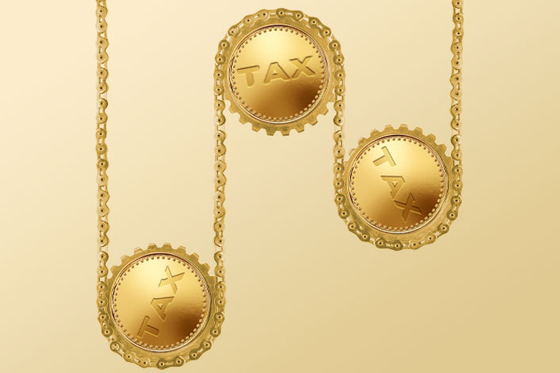Economists and pundits have been clamoring for several years that once we run out of LDC status in two years, our core economic model – low-skilled low-wage workers – will be at risk. Once incentives are reduced, we will have to learn how to make more advanced products, diversify our export basket and upskill our workers.
All this, of course, is related to the state of research and development in our country, which can significantly improve our capacity on all three fronts.
The last RHowever, the Bangladesh Bureau of Statistics (BBS) report paints a rather bleak picture in this regard. Bangladesh’s gross expenditure on research and development (GERD) was just 0.30% of GDP for the 2020-21 fiscal year, after 0.35% and 0.31% in the previous two years.
These low figures place Bangladesh among the lowest in the world in R&D investment.
Despite steady GDP growth averaging 6.5% since the early 2010s, in the Global Innovation Index 2022, Bangladesh ranks 102nd, lagging behind regional counterparts such as India (40th) and Indonesia ( the 75th).
R&D expenditure for fiscal years 2018-19, 2019-20 and 2020-21 was Tk 10,192 crore, Tk 9,885 crore and Tk 10,481 crore respectively.
This figure becomes even more alarming when you discount the research expenditure in the agricultural sector, which alone accounts for Tk 3,875 crore – a reflection of our strong commitment to food production. Our expenditure in the industrial sector is Tk 331 crore.
According to the BBS report, the total number of researchers in all sectors of the country is 18,025, of which 12,797 are full-time researchers.
First, it is right that there should be an incentive for investment in R&D. Companies that make these expenses should benefit from tax cuts. Second, the business community, especially the companies in question, must demonstrate integrity in accounting for these expenses.
Debapriya Bhattacharya, a distinguished fellow at the Center for Policy Dialogue (CPD)
Lack of incentives
In some countries, the government itself invests in R&D alongside the private sector, creating a partnership that encourages private sector innovation and benefits the country. It’s a win-win for both the private sector and the government.
In Bangladesh, there are virtually no government incentives or tax benefits for R&D expenditure. The private sector has asked the government to share R&D spending and provide tax exemptions, but these requests have so far been ignored.
“Impact research is almost non-existent in our country, not even encouraged,” said Abul Kashem Khan, Managing Director of AK Khan Telecom Ltd (AKTL).
There are strict rules for R&D investment in Bangladesh. If companies spend additional money on R&D, it is added to income and taxed. Kashem Khan believes that the government’s mindset needs to change in this regard.
“Bangladesh has achieved success in rice research…Research is also important for the advancement of the industrial sector. Both the government and the private sector should come forward in this regard,” said Binayak Sen, director general of the Institute of Rice Studies. Development in Bangladesh. , adding, “There is no alternative to looking for future progress.”
The government’s lack of interest in providing incentives, however, is partly due to bad experience. In the past there have been cases where fiscal incentives for R&D have been abused, causing tax collectors to view such permissible expenditures negatively.
Debapriya Bhattacharya, a distinguished fellow at the Center for Policy Dialogue (CPD), says that this argument has two aspects.
“First, it is right that there should be an incentive for investment in research and development. Companies that make these expenditures should benefit from tax reductions. Second, the business community, especially the companies in question, should demonstrate integrity in the calculation of these expenses.”
It is time to revisit this issue and develop a more appropriate and efficient approach. “Ignoring it is not an option given our economic challenges, especially as the country is transitioning from LDC status to officially becoming a ‘Developing Country,'” Debapriya added.
Research for the sake of research is not practical in our country. Industry will not fund research unless it directly benefits from it.
Ahsan H. Mansur, director of the Bangladesh Policy Research Institute
We need to build up our industrial base
ohone of the main reasons for our low R&D expenditure is that we operate mainly in low-skilled sectors and in the service industry, where the extent of R&D is low. Activities such as garment manufacturing have limited scope for research and development other than design.
In terms of manufacturing, only Walton is making some strides, but overall, the sector remains very small. We are mainly engaged in primary processes, where R&D is not necessary. We have not yet advanced to the level of innovation and advanced manufacturing processes.
The market is not inclined to invest in Research and Development, as we do not engage in light or heavy engineering or development of pharmaceutical products beyond licensed products. To expand the scope for R&D, we need to build up our industrial base. We need to invest in the development of new products in sectors such as electronics, light engineering and pharmaceuticals. We even lack important IT firms or innovation centers. In health care, for example, icddr,b is working on limited projects and has a research center, but outreach to the industrial sector is minimal.
“Research for research’s sake is not practical in our country. Industry will not fund research unless it directly benefits from it,” Ahsan said. H. Mansur, an economist and director of the Bangladesh Policy Research Institute.
“We are currently in the technology adoption phase, where we import technology from countries like China and use it without creating anything new. Technological updates happen, but they are not driven by R&D,” he said. Mansur.
Bridge industry and academia
There are over 100 universities in Bangladesh, but there is a lack of linkage between academic research and industry needs. A major issue at the university level is the lack of research due to a lack of sponsors or grants. Encouraging private companies with tax exemptions for research investments can stimulate more funding and induce researchers to engage in more projects.
According to Abul Kashem Khan, universities should be research centers and industries should provide the necessary funds. “An innovation center could facilitate this connection, allowing industries to invest in promising academic projects,” he suggested.
Ahsan H Mansur pointed out that Bangladeshi healthcare is also not research driven. “Our medical colleges do not conduct substantial research. If promotions are based purely on teaching and practice, there is no reason for professors to do research.”
Investing in small and individual innovations
Small firms and individuals should also be encouraged to engage in R&D. Innovation is no longer just the domain of companies; individuals can also contribute significantly. With the right equipment and environment, tech-savvy young individuals can achieve remarkable things, develop skills that can earn foreign currency. A tax exemption or subsidy for equipment or appliances, or for skill development ventures, would encourage households to invest in such items.
Kashem Khan says that when he was President of the Dhaka Chamber of Commerce and Industry (DCCI), he urged the government to support individual innovation.
The government’s aim to create a “Smart Bangladesh” requires smart thinking, especially from the youth. Innovation must spread from house to house, taking advantage of the country’s demographic dividend.
#Govt #Pvt #sector #interest
Image Source : www.tbsnews.net


